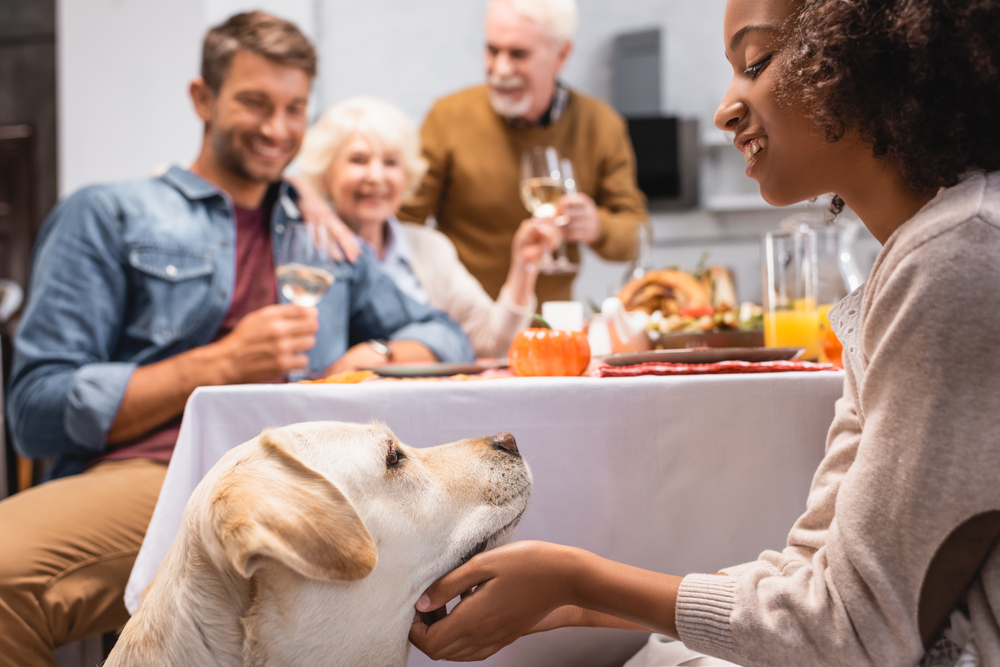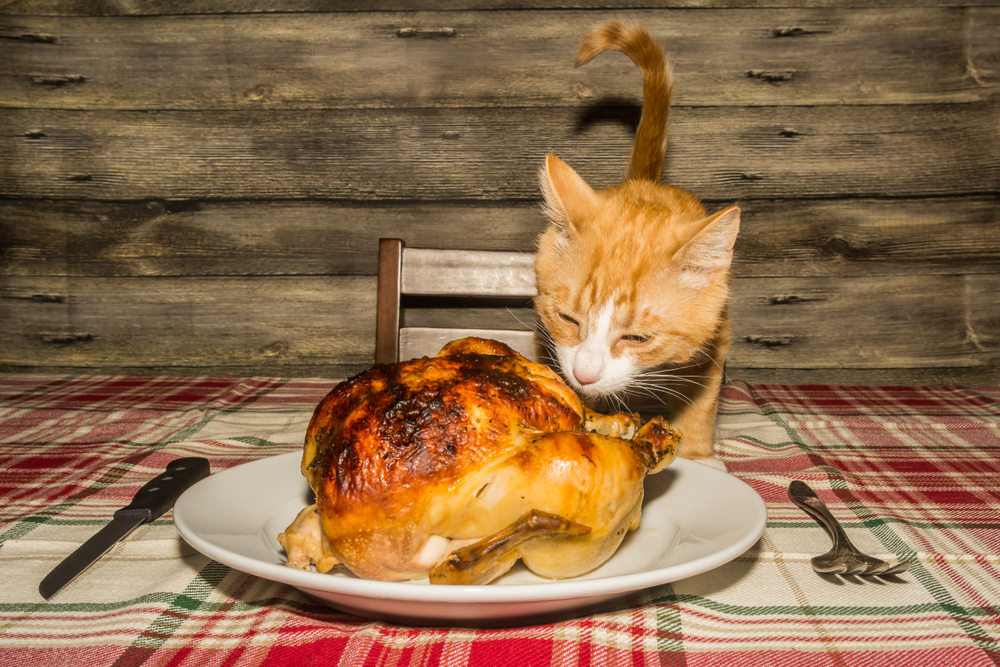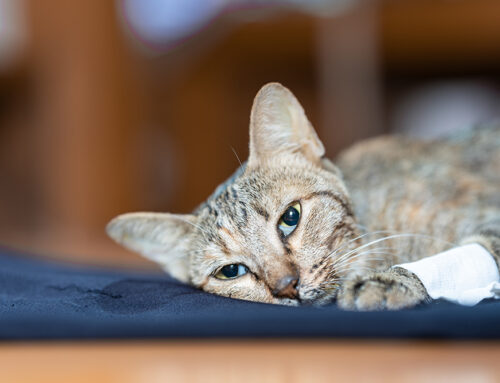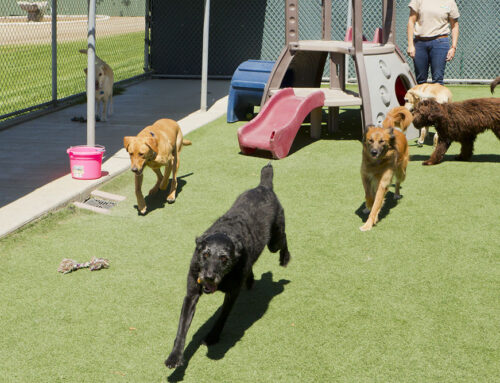As Thanksgiving approaches, you’re likely counting your blessings, with your pet’s companionship at the top of your list. Naturally, you want to include your furry pal in all the holiday activities, but several key Thanksgiving hazards may pop up that require protection for your pet. Watch out for the following three common Thanksgiving dangers.
#1: Thanksgiving foods and pets
Nothing is better than a Thanksgiving table groaning under the weight of all your favorite dishes. Your furry pal, like you, is probably drooling at all the delicious aromas, but they should avoid filling their own plate, since many foods are dangerous for pets. Keep the following foods away from your pet:
- Turkey — The star attraction of a Thanksgiving feast is also one of the most hazardous to pets. Almost all of the turkey, from the skin to the bones, poses some threat. Spices and seasonings used to flavor a bland bird can upset your pet’s stomach, while the high-fat skin and dark meat can inflame the pancreas, potentially causing serious pancreatitis. Gnawing on a turkey leg exposes your pet to dual hazards, because the bones can splinter and pierce their mouth, esophagus, or stomach, or the shards may lodge in the intestinal tract and require surgical removal. If you must share some Thanksgiving turkey with your pet, choose a small piece of breast meat that contains no seasonings, skin, or bones.
- Bread dough — Unbaked yeast dough will eventually turn into pillowy rolls, but the dough, if ingested, can expand in your pet’s oven of a stomach, and form a gastrointestinal blockage. The dough can also cause alcohol toxicity when fermentation takes place in your pet’s stomach and alcohol leaches into their bloodstream, causing dangerous intoxication.
- Onions, garlic, leeks, and chives — These Allium family members are popular additions to many Thanksgiving dishes, but they can destroy your pet’s red blood cells and cause anemia if your pet consumes large amounts.
- Desserts — Pies, fruitcakes, cookies, chocolates, and other sweet treats that round out your Thanksgiving spread contain hazardous ingredients for pets. Raisins and currants can cause kidney failure, while chocolate can lead to serious neurologic issues. Sugar-free treats are also unsafe, since they are often sweetened with xylitol, a sugar substitute that can cause hypoglycemia and liver failure in dogs.
#2: Fall decor and pets
Fall brings beautiful, bold colors in seasonal plants, and tempts you to create gorgeous home displays. However, several popular plants and decor items can be hazardous to your pet, including:
- Pumpkins, corn, and straw — While not necessarily toxic, pumpkins, corn cobs and stalks, and straw items that you display on your porch and in your home can pose a threat to your pet. If eaten, these items can cause gastrointestinal upset or a blockage, especially if they have begun to rot or mold after being left outside too long.
- Chrysanthemums — Eating these bright blooms can lead to your pet vomiting, having diarrhea, drooling excessively, losing their appetite, and walking difficulty.
- Autumn crocus — The autumn crocus, which actually belongs to the lily family, can cause anemia, vomiting, diarrhea, depression, difficulty breathing, multi-organ damage, seizures, shock, and possibly death in pets.
- Acorns — Acorns can be toxic to dogs if eaten in large quantities. The acorn tannins can cause gastrointestinal upset and, in severe cases, lead to kidney failure and death.
#3: Visiting guests and pets

Family and friends who join in your celebrations can provide plenty of interaction for your pet, but can also bring their fair share of hazards. Greetings at the front door can create the perfect opportunity for a pet to slip out and become lost, so ensure their microchip information is up to date before the holiday. Once your guests have settled in, they may leave suitcases open and purses lying about, and your pet may grab the chance to ingest their medications, sugar-free gum, and candy bars. Also, your home filled with strangers can be stressful for your pet, so watch for their anxiety signals. Consider secluding your pet from the commotion in a safe spot that is off-limits to your guests. Find your pet a quiet, comfortable place to relax with their preferred bedding, a new toy, and a long-lasting treat.
If your furry pal manages to steal the Thanksgiving turkey, or chews on your chrysanthemum display, despite your close attention, contact our Animal Clinic of Council Bluffs team for help.






Leave A Comment